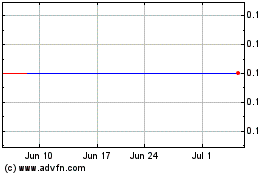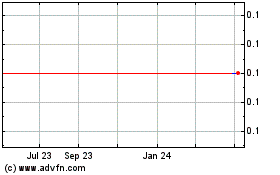Today's Top Supply Chain and Logistics News From WSJ
July 21 2017 - 6:58AM
Dow Jones News
By Paul Page
Sign up: With one click, get this newsletter delivered to your
inbox.
Sears Holdings Corp.'s new agreement with Amazon.com Inc. marks
an important step for the troubled retailer and for the online
giant that's provided Sears its biggest competitive threat. Sears
will start selling its Kenmore line of refrigerators and stoves on
Amazon's website, the WSJ's Imani Moise and Suzanne Kapner report,
marking the first distribution of Sears kitchen appliances outside
of its own stores. That's a dramatic step for the struggling
retailer, but it also pushes Amazon more deeply into the
large-appliance business, one of the few corners of retail where it
has yet to penetrate deeply. Both companies will upend their supply
chains to make the plan work. Amazon will buy the Kenmore
inventory, but it will reside in Sears's warehouses, and a Sears
distribution unit will ship the goods to customers' homes and have
them installed. Sears is hoping the tie-up brings more foot traffic
while Amazon is effectively taking in more real estate, and a
distribution operation to go with it.
It's no wonder Sears is looking to Amazon as a savior of sorts,
at least for its appliance business. A comparison of the two
retailers over time provides a graphic illustration of how the
companies have effectively swapped places over recent years. The
WSJ's Yaryna Serkez and Theo Francis write that major financial and
scale measures for the companies completely crossed from 2009 to
2017, with Amazon overtaking and surpassing Sears even in physical
space as the online retailer has bulked up in distribution centers.
Amazon has surged from 17 warehouses to more than 260 in 30 states,
most of them opened in 2015 and 2016. Sears has scaled back from
some 2,000 stores to 1,200 in that time, and its 31 domestic
distribution centers are down from 39 in 2009. Most significant may
be that Amazon generates $400,000 in revenue per employee against
Sears' $160,000, a gap that illustrates the challenge facing
traditional retailers.
Volvo Car Corp. will start its transformation into an
all-electric brand in China. The Swedish car maker is putting into
a place a wide-ranging technical collaboration with its Chinese
parent Zhejiang Geely Holding Group Co., the WSJ's William Boston
and Dominic Chopping report, in a multi-year effort that may
provide a jolt to drive the auto industry toward an electrified
future. Volvo Cars will also take a stake in Lynk & Co., a car
brand the Chinese investment group created in its effort to become
a global automotive force. The venture aims to lower development
costs by sharing technology across the three car companies
controlled by Geely Holding. But the impact could spread as the
project grows, with the scale of the businesses -- Volvo sold
nearly 150,000 new cars last year -- potentially pushing other car
makers and components suppliers to go after the market for electric
cars and hybrids.
SUPPLY CHAIN STRATEGIES
Chipotle Mexican Grill Inc. is coming under scrutiny again for
its food sanitation after overhauling its supply chain over the
last two years. The food chain reopened a Virginia location that it
had shuttered this week after reports that customers had gotten
sick there, and the WSJ's Julie Jargon reports that more than 100
people may have been sickened. Chipotle says the cause of the
outbreak was a norovirus that didn't come through the food supply,
and the local health department says there's no early indication
the illness came through the supply chain. For the chain, a pioneer
in the fast-casual restaurant category, the shutdown recalls
incidents a couple of years ago that sent Chipotle's planners
scrambling to redesign how they prepared, packaged and shipped
their food. Those tougher controls may be one reason Chipotle is so
confident the more recent outbreak was limited to one site.
QUOTABLE
IN OTHER NEWS
A new report says supply-chain disruptions from extreme weather
are growing but companies are doing little to assess risks.
(WSJ)
Crude oil prices retreated after reaching a seven-week high on
reports of another decline in U.S. stockpiles. (WSJ)
The euro jumped against the dollar to its highest level in
nearly two years. (WSJ)
Economic talks between the U.S. and China ended without an
agreement or future agenda, leaving Trump administration efforts to
recast trade ties with Beijing in limbo. (WSJ)
Volvo is forecasting record car sales this year after strong
Asia Pacific-led gains in the first half of 2017. (WSJ
Honda Motor Co. has made little progress in talks aimed at a
collaboration with Waymo LLC, the self-driving car unit of Alphabet
Inc. (WSJ)
Unilever PLC reported a sharp rise in first-half profit and
forecast better-than-expected margins for the full year. (WSJ)
Alibaba Group Holding Ltd. is moving more aggressively to open
physical outlets amid signs its online growth may be peaking.
(Reuters)
Samsung Electronics Co. Ltd. will buy display panels from LG
Group, the first big partnership between the two South Korean
rivals. (Nikkei Asian Review)
Lenovo Group Ltd. Chief Executive Yang Yuanqing says he will
resign if he doesn't boost the PC maker's online revenue to $12
billion in three years. (Bloomberg)
Drivers at a FedEx Freight truck terminal in Croydon, Pa., voted
to drop the Teamsters union as their bargaining representative.
(Business Journals)
Union Pacific's second-quarter profit rose 19% to $1.16 billion
as coal revenue jumped 25% on stronger volumes and pricing. (Omaha
World-Herald)
Second-quarter profit at Canadian Pacific Railway soared 46% to
a record $381.6 million. (CBC)
Freight broker C.H. Robinson Worldwide Inc.'s second-quarter
profit fell 22.4% to $111.1 million as rising shipping costs offset
revenue and volume growth. (The Loadstar)
Freight forwarder Panalpina boosted its second-quarter
consolidated net profit 37% to $31.4 million. (Journal of
Commerce)
Congressional Republicans say any action on infrastructure
legislation will come after lawmakers address healthcare and a tax
overhaul. (The Hill)
Delays in ship handling at Bangladesh's Port of Chittagong have
reached 12 days. (Splash 24/7)
DryShips Inc. set its fifth reverse stock split this year as the
bulk carrier faces new shareholder lawsuits over earlier market
actions. (American Shipper)
ABOUT US
Paul Page is deputy editor of WSJ Logistics Report. Follow him
at @PaulPage, and follow the entire WSJ Logistics Report team:
@brianjbaskin , @jensmithWSJ and @EEPhillips_WSJ. Follow the WSJ
Logistics Report on Twitter at @WSJLogistics.
Write to Paul Page at paul.page@wsj.com
(END) Dow Jones Newswires
July 21, 2017 06:43 ET (10:43 GMT)
Copyright (c) 2017 Dow Jones & Company, Inc.
Sears (CE) (USOTC:SHLDQ)
Historical Stock Chart
From Mar 2024 to Apr 2024

Sears (CE) (USOTC:SHLDQ)
Historical Stock Chart
From Apr 2023 to Apr 2024
